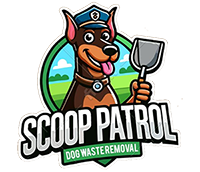Dog Diarrhea and Constipation Causes, Prevention, and When to See a Vet

As loving dog owners, we’re attuned to our furry companions’ quirks and personalities. However, we also face the less pleasant realities of pet ownership, and digestive issues like diarrhea and constipation are among them. While often temporary and mild, these conditions can cause discomfort for your dog and, in some cases, signal a more serious underlying health problem.
This comprehensive guide will equip you with the knowledge to understand dog diarrhea and constipation, identify their causes, implement preventative measures, and recognize when professional veterinary care is essential. By becoming informed about your dog’s digestive health, you can ensure their comfort and well-being.
Dog Diarrhea: Causes, Symptoms, and When to Worry
Diarrhea, characterized by loose or watery stools, is a common occurrence in dogs. It results from an imbalance in the intestinal tract, affecting the absorption of water and nutrients.
What is Dog Diarrhea?
Normal dog stools are typically firm and well-formed. Diarrhea, on the other hand, can range from slightly soft to completely liquid. It may also be accompanied by increased frequency of defecation.
Causes of Dog Diarrhea:
The causes of diarrhea in dogs are diverse, ranging from simple dietary indiscretions to more complex medical conditions.
Dietary Indiscretions:
This is a frequent culprit. Dogs, known for their scavenging tendencies, may ingest spoiled food, garbage, or foreign objects, leading to digestive upset. Sudden changes in diet can also trigger diarrhea.
Stress and Anxiety:
Just like humans, dogs can experience digestive upset due to stress or anxiety. Triggers can include travel, changes in routine, or loud noises.
Infections:
- Bacterial Infections: Bacteria like Salmonella and E. coli can cause intestinal infections, leading to diarrhea.
- Viral Infections: Viruses such as parvovirus and distemper can cause severe diarrhea, especially in puppies.
- Parasitic Infections: Internal parasites like roundworms, hookworms, whipworms, Giardia, and Coccidia can irritate the intestinal lining and cause diarrhea.
Food Allergies and Intolerances:
Some dogs have allergies or intolerances to certain food ingredients, such as specific proteins or grains.
Inflammatory Bowel Disease (IBD):
IBD is a chronic inflammatory condition affecting the gastrointestinal tract.
Pancreatitis:
Inflammation of the pancreas can disrupt digestive enzyme production and lead to diarrhea.
Toxins and Poisons:
Ingesting toxins or poisons can severely irritate the digestive system and cause diarrhea.
Medications:
Certain medications, such as antibiotics, can have diarrhea as a side effect.
Underlying Health Conditions:
Diarrhea can be a symptom of other health problems, such as liver disease, kidney disease, or cancer.
Symptoms Accompanying Diarrhea
Diarrhea may be accompanied by other symptoms, which can provide clues about the underlying cause and the severity of the condition.
- Increased frequency of defecation
- Urgency to defecate
- Loss of appetite
- Vomiting
- Lethargy or weakness
- Abdominal pain or discomfort
- Blood in the stool (fresh red blood or dark, tarry stool)
- Dehydration
When is Dog Diarrhea a Cause for Concern?
While a single episode of mild diarrhea is often not a cause for alarm, certain signs warrant a prompt visit to the veterinarian.
Persistent Diarrhea:
Diarrhea that lasts for more than 24-48 hours should be evaluated by a vet.
Frequent Diarrhea:
Multiple episodes of diarrhea within a short period can lead to dehydration and electrolyte imbalances.
Blood in the Stool:
Fresh red blood suggests bleeding in the lower digestive tract, while dark, tarry stool indicates bleeding in the upper digestive tract. Both require veterinary attention.
Dog Constipation: Causes, Symptoms, and Management
Constipation, characterized by infrequent or difficult passage of stool, is another common digestive issue in dogs.
What is Dog Constipation?
Normal defecation frequency varies among dogs, but generally, a healthy dog will defecate at least once a day. Constipation is defined as a decrease in the frequency of defecation, straining to defecate, or the passage of small, hard, dry stools.
Causes of Dog Constipation:
The causes of constipation in dogs can also be varied.
Dehydration:
Insufficient water intake is a major contributor to constipation.
Lack of Fiber:
A diet lacking in fiber can lead to hard, dry stools that are difficult to pass.
Ingestion of Foreign Objects:
Dogs that ingest bones, hair, or other indigestible materials can develop intestinal blockages, leading to constipation.
Enlarged Prostate:
In older male dogs, an enlarged prostate can compress the colon and make defecation difficult.
Anal Gland Issues:
Impacted or infected anal glands can cause pain and discomfort during defecation, leading to constipation.
Medications:
Certain medications, such as antihistamines or opioids, can cause constipation as a side effect.
Lack of Exercise:
Regular exercise helps stimulate intestinal motility and promotes regular bowel movements.
Neurological Problems:
Neurological conditions can affect the nerves that control bowel function.
Tumors or Growths:
Tumors or growths in the colon or rectum can obstruct the passage of stool.
Hernias:
Hernias can cause intestinal obstruction and lead to constipation.
Symptoms of Dog Constipation
- Infrequent defecation
- Straining to defecate
- Passing small, hard, dry stools
- Pain or discomfort during defecation
- Lethargy
- Loss of appetite
- Vomiting
- Abdominal distention
Managing Dog Constipation
- Increasing Water Intake: Ensure your dog has access to fresh, clean water at all times.
- Increasing Fiber Intake: Adding fiber to your dog’s diet can help soften stools and promote regular bowel movements. This can be done through fiber-rich foods or supplements, but consult your veterinarian first.
- Exercise: Regular exercise is essential for stimulating intestinal motility.
- Stool Softeners: Veterinarians may prescribe stool softeners to help ease the passage of stool.
- Enemas: Enemas can be used to relieve severe constipation, but they should only be administered by a veterinarian or under their guidance.
- Manual Removal: In some cases, manual removal of impacted stool may be necessary, but this should only be done by a veterinarian.
- Addressing the Underlying Cause: It’s crucial to identify and address the underlying cause of constipation, such as an enlarged prostate, anal gland issues, or a foreign object obstruction.
When is Dog Constipation an Emergency?
Obstruction: If you suspect your dog has ingested a foreign object and is showing signs of constipation, it’s crucial to seek immediate veterinary care, as an intestinal obstruction can be life-threatening.
Severe Straining: If your dog is straining excessively to defecate without producing any stool, it could indicate a serious problem.
Severe Lethargy or Vomiting: Constipation accompanied by severe lethargy or vomiting is a cause for concern.
Abdominal Distention: A distended or bloated abdomen can indicate a serious condition.
Prevention of Dog Diarrhea and Constipation
Prevention is always better than cure. Implementing proactive measures can significantly reduce the risk of your dog experiencing diarrhea and constipation.
Diet Management:
High-Quality Food: Feed your dog a high-quality, balanced diet appropriate for their age, breed, and activity level.
Gradual Diet Changes: If you need to switch your dog’s food, do so gradually over 7-10 days to avoid digestive upset.
Avoid Table Scraps and Garbage: Do not feed your dog table scraps or allow them to scavenge for food in the garbage.
Proper Storage: Store dog food properly to prevent spoilage.
Hydration:
Ensure your dog has access to fresh, clean water at all times.
Parasite Control:
Regular deworming and fecal examinations can help prevent parasitic infections.
Vaccination:
Keep your dog up-to-date on vaccinations to protect against viral infections.
Stress Management:
Minimize stress and anxiety in your dog’s environment.
Exercise:
Provide regular exercise to promote healthy digestion.
Monitoring Stool:
Regularly monitor your dog’s stool for any changes in consistency, color, or frequency.
Prompt Veterinary Care:
Address any underlying health issues promptly.
The Role of Responsible Pet Ownership
Responsible pet ownership extends beyond providing food and shelter. It includes being proactive about your dog’s health and well-being, including their digestive health.
Observing Your Dog’s Behavior:
Pay close attention to your dog’s behavior and habits, including their eating, drinking, and defecation patterns.
Maintaining a Clean Environment:
Regularly clean up dog waste in your yard to prevent the spread of parasites and bacteria. (This is where a service like Scoop Patrol can be very beneficial!)
Seeking Professional Guidance:
Don’t hesitate to consult your veterinarian if you have any concerns about your dog’s digestive health.
Dog diarrhea and constipation are common but manageable issues. By understanding their causes, recognizing the symptoms, implementing preventative measures, and seeking timely veterinary care when necessary, you can ensure your furry friend enjoys a healthy digestive system and a happy, comfortable life.
Remember, early detection and intervention are key to preventing complications and promoting your dog’s overall well-being.
For more tips on responsible pet ownership and maintaining a healthy environment for your dog, visit our blog or contact us today!

